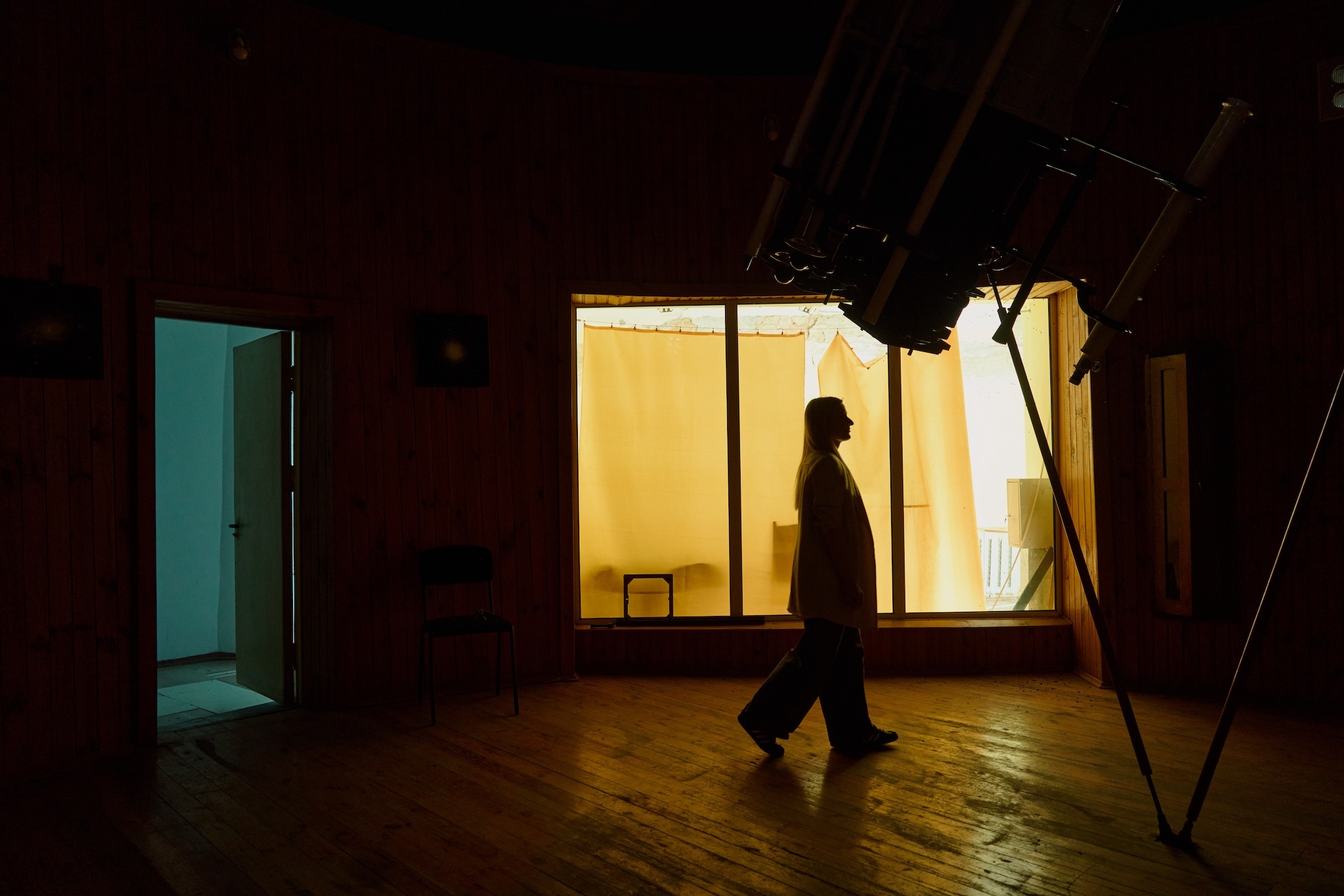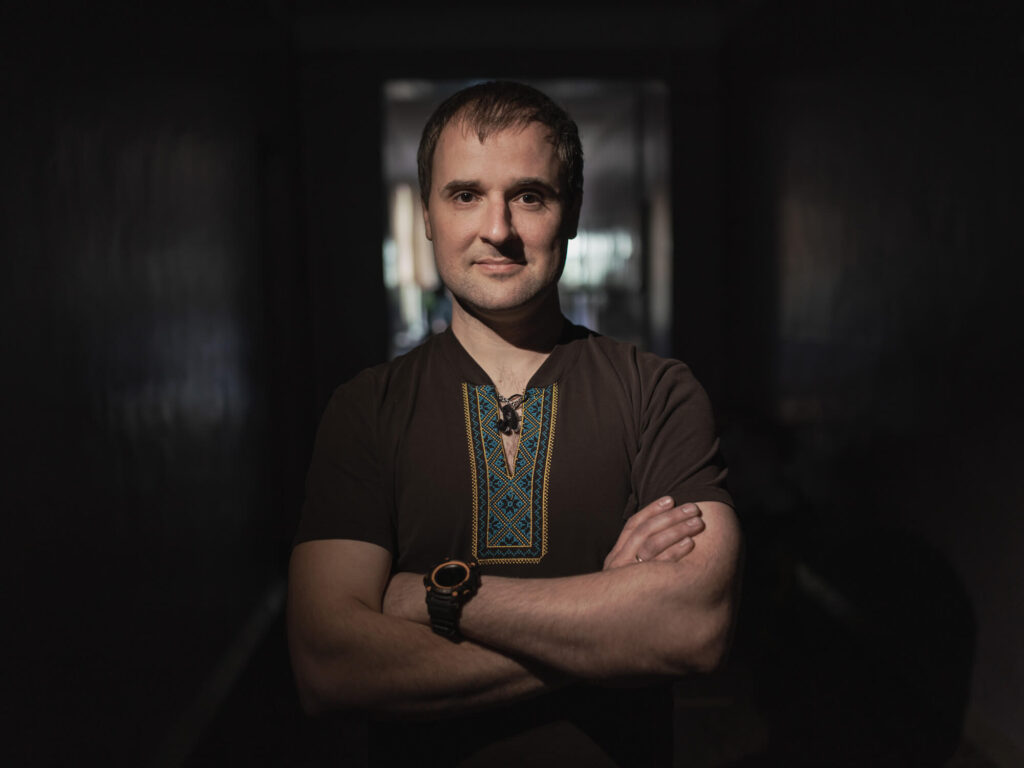[This material was created in partnership with INSCIENCE]
None of the women featured in this article started their paths in a science lab. They started out by searching. Some would search for their identity within the expansive whirl of the Earth’s biodiversity, while others felt like even an entire galaxy wasn’t enough.
Each of these women represents either the present or the future of Ukrainian science – they are the research supervisors and their students. Their path has never been easy – and it still isn’t, due to the lack of financing, personal hardships and losses suffered as a result of the Russian full-scale invasion. Despite the challenges, these women continue to explore our world, not just for their own sake, but for the sake of future generations of Ukrainian women in science. After all, is there anything capable of stopping a Ukrainian woman in science?
***
Iryna Vavilova
Field of scientific interest: extragalactic astronomy and astroinformatics
Department Head at the Main Astronomical Observatory of the National Academy of Sciences of Ukraine
45 years in science
My path in science began with writing my coursework in 1979, when I was 20 years old. At that time, the first catalogues that made it possible to calculate the positional angles of galaxies became available. I wrote programming code and carried out calculations using large computing equipment.
In the Soviet Union, the scientific career path was fairly structured: after defending a PhD thesis, one received a set salary and after five years of work, could become a senior researcher. But my career did not develop in a linear way, as my priorities kept changing. I had my first child at 20. Then came the difficult period of the 1990s, when science was no longer a pragmatic choice due to very low salaries. I worked several jobs, gave private lessons and for a time did not think much about science, because I had to focus on other things entirely. Yet I never felt disillusioned with science.
I completed my PhD in the 1990s, and I still work in a field I truly enjoy.
I am a happy person, and I believe science has given back to me for all the time I have devoted to it. Science is a continuum. It is not a 9-to-5 job.
One of the most extraordinary problems in astrophysics is understanding the creation, formation and evolution of the large-scale structure of the Universe. With modern telescopes, we can now gather information from immense distances — even detecting the so-called microwave radiation that began just minutes after the Universe’s birth.
Our understanding of the Universe has changed enormously over the past ten years. When I was starting my career, we viewed the Universe through a narrow window; now we are studying the properties of galaxies across the entire energy spectrum.
I deal with the world of galaxies. We have developed different approaches to solving problems within our capabilities, for example, using Einstein’s equations, or with the help of artificial intelligence and machine-learning methods. We were likely the first in Ukraine to use AI for classifying different galaxies. If you have a certain set of logically connected objects, you can generalize them. One of the projects we are currently implementing is called “Galaxies Analogous to the Milky Way.” In the past, researchers searched for the Sun or stars similar to it, now we have the ability to identify Earth-like planets. This led to a new question: shouldn’t we also look for galaxies analogous to the Milky Way to better understand our own? Nature tends to duplicate itself, and there may well be another spiral beauty just like ours somewhere in the Universe, with its own solar system.
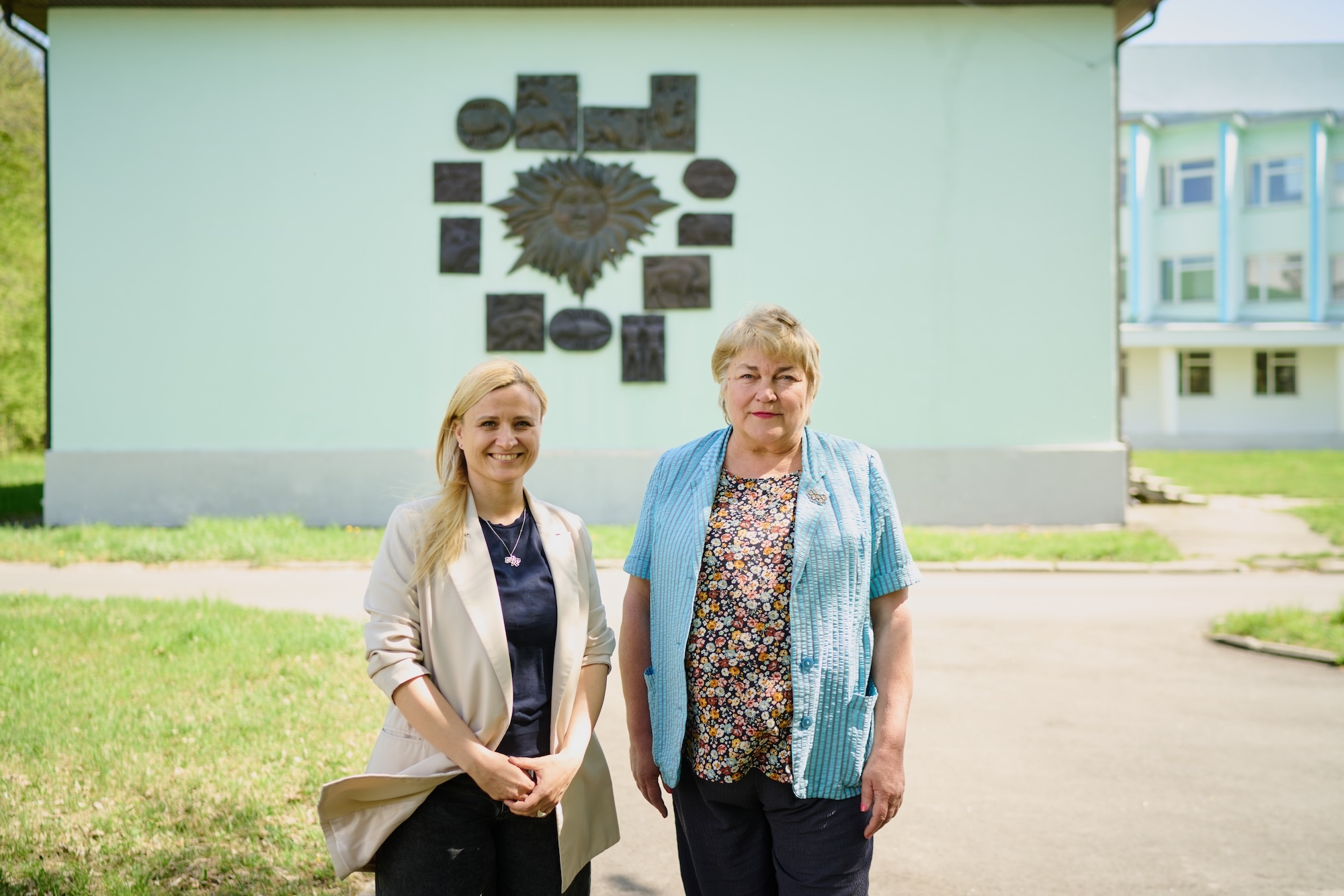
Daria Dobrycheva
Field of scientific interest: astrophysics and radio astronomy
Senior Researcher at the Main Astronomical Observatory of the National Academy of Sciences of Ukraine
14 years in science
It so happened that after school, I studied at a Teacher’s Training University, specializing in “Computer Science and English,” not astrophysics. However, our group was curated by an astrophysicist named Volodymyr Marchenko, who had just defended his PhD thesis at the time. He received a short-term grant to open an astronomical center and started giving us lectures in astronomy. He explained everything in an accessible way, and I became obsessed! Volodymyr said that his colleague in Kyiv is looking for students who could visually assess galaxies and define which type they belong to. I agreed to do this job, and it became the basis for my final thesis.
Because classical university education differs from teacher-training education, I couldn’t proceed directly to a PhD. In my first year, I worked as an engineer at an observatory while preparing for the entrance exams. In the second year, I was admitted to the part-time PhD program, and by the third year, I was finally able to transfer to the full-time track and begin my doctoral journey under the supervision of Iryna Vavilova.
My PhD thesis had to do with machine learning methods, so my computer science education helped me out. The telescope scans the sky, and once every six months, this data becomes available to the public. The near Universe contains 300,000 galaxies. We applied machine learning methods to determine the morphology of each galaxy. Also, we used different mathematical methods to characterize their environment, identifying the presence of neighboring galaxies and assessing how these neighbors may have influenced the galaxies’ evolutionary paths.
I’ve never encountered discrimination. I think I owe that to my research supervisor, because she is also a woman and never gave anyone preferential treatment because of their sex. Yes, she had doubts about my ability to succeed in science after my teacher training education, since I did have some sizable gaps in knowledge. But I had so much passion at the time — I really wanted to be a scientist, so I didn’t care how much time it would take for me to get there.
Imagine — in our Galaxy alone, there are approximately 300 billion stars, and the Sun is one of them.
Most of those stars have planets orbiting them. My sample contains 300,000 galaxies. When I think about other things I could be doing, nothing comes close to this in terms of scale. The scale of the Universe draws me in more than any other job could.
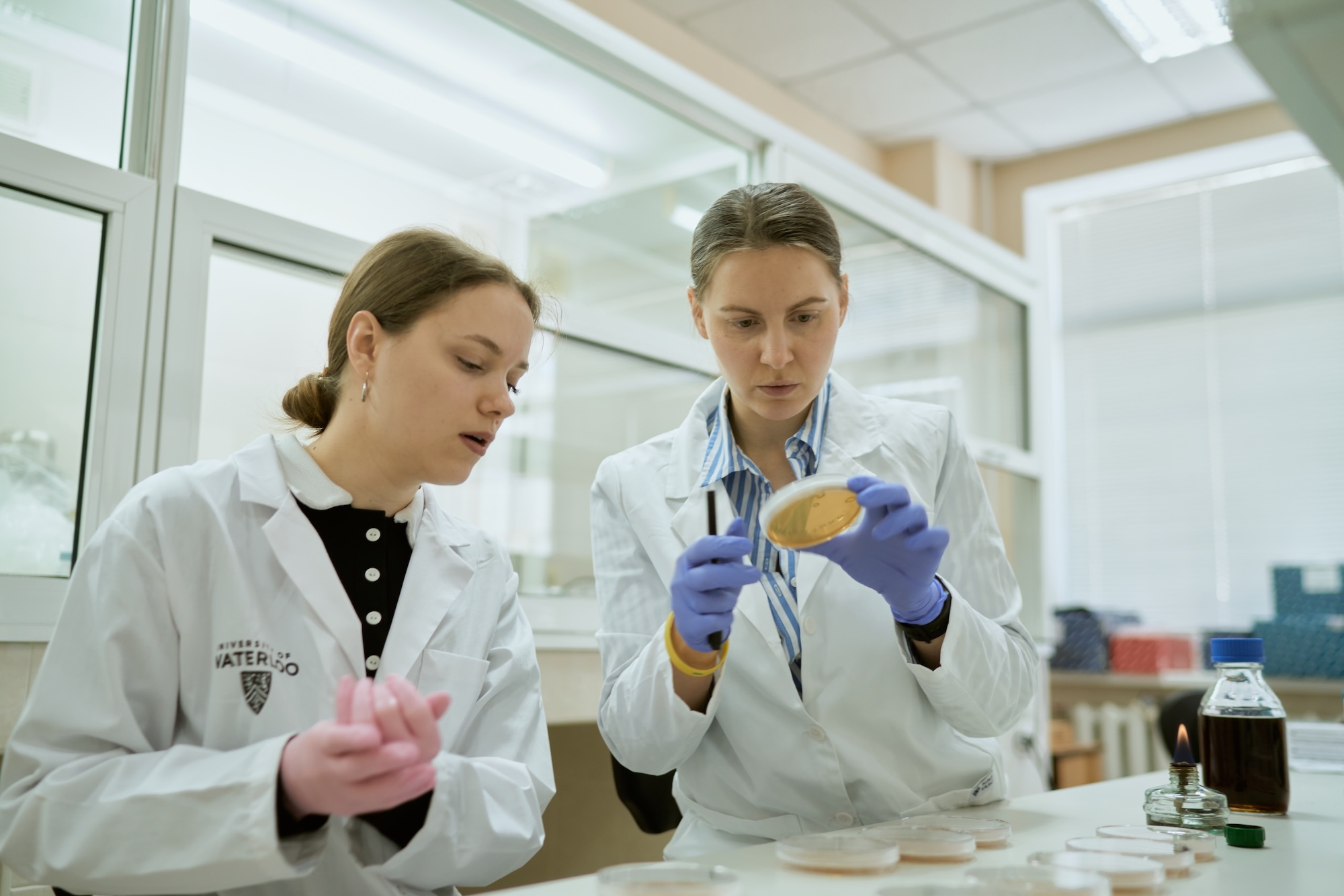
https://theukrainians.org/en/women-exploring-our-landscapes/(відкривається у новій вкладці)
Yevheniia Prekrasna-Kviatkovska
Field of scientific interest: microorganism ecology
Senior Researcher, Department of Biology and Ecology, National Antarctic Scientific Center of Ukraine
13 years in science
It feels like I have always wanted to be a scientist. At university, I became fascinated by microscopic organisms. Later, I began researching the conditions necessary for cultivating the Listera ovata orchid. Orchids have an incredibly close relationship with microscopic fungi: many species depend on them to deliver nutrients to the seed so that it can develop into a plant. However, this relationship can also be dangerous, since a fungus can destroy the seed. I found this extremely fascinating, but at the time I had no idea how to study the interaction between a plant and a microscopic fungus. I was young, I didn’t know many people in the scientific community, and I had no clue who to turn to for advice.
Now I study Antarctic plants instead of orchids. Together with scientist Olesia Stelmakh, I research which bacteria colonize Antarctic vascular plants (Antarctic hair grass and Antarctic pearlwort), what functions these bacteria perform, and how they affect plant growth. We have discovered bacteria that help Antarctic plants resist low temperatures. This research may hold significant potential for developing new biotechnologies, such as improving the cultivation of agricultural crops in challenging conditions. But there is still much work ahead.
Mentoring Olesia has been very important to me. I know what it feels like to have no one to turn to in difficult situations. I remember myself in graduate school, when I lacked basic skills in molecular biology, such as DNA and RNA extraction. These skills are essential in my field of research, and I had to learn them later on my own. That is why I understand how uncomfortable research can be without support.
Of course, I have also had people I consider mentors, such as my professors at the Kyiv-Mohyla Academy: Yevhen Dykyi, whose lower plants botany class was well attended even on Friday evenings; Ihor Dzeverin, who taught invertebrate zoology; Vasyl Zagnitko, whose geology lectures once made me consider becoming a geologist; Iryna Furtat, my microbiology professor, who taught me how to plan an experiment; and Sofia Stavska, who encouraged me to go to graduate school. None of them were my formal academic advisors or mentors in the traditional sense, but they are the people who immediately come to mind when I think about mentorship.
When I was studying for my postgraduate degree, I noticed how many young scientists and researchers there were, as well as representatives of the older generation. However, the middle link — people aged 30–45 who could serve as a bridge between generations — was largely missing. Yet this is the most professionally active group: they are the ones attending conferences, meeting colleagues, acquiring new skills and able to pass this knowledge on to younger scientists.
At the time, we had no one to learn from — we were caught between generations. Now that I am part of that middle generation myself, I feel a responsibility to pass on my knowledge.
Olesya Stelmakh
Field of scientific interest: molecular biology and biotechnology
Leading specialist in the Department of Biology and Ecology at the National Antarctic Scientific Center
4 years in science
My grandparents worked in the natural sciences their whole lives. They travelled frequently for work, visiting forestries, studying soils and tree species. When I was little, I could ask them anything about nature, and they always had an answer. Now, as a scientist working in a lab and researching the relationship between bacteria and plants, I recognize how much they influenced my choice.
In recent years, I have fully embraced the fact that I am a scientist. I began to understand what it really means, why I am doing it, and where my career could go.
Meeting Yevheniia Prekrasna-Kviatkovska marked the beginning of my conscious journey in science. I became interested in Antarctica after coming across more and more posts from the National Antarctic Scientific Center on social media. I read about their main fields of research and learned how to join an expedition, what education and experience were required. One day, I won the chance to receive a video call from Antarctica — I was able to “talk” to penguins and ask a biologist my questions. After that, I realized that no matter how far away Antarctica is, the idea of doing research there is quite achievable.
I am currently researching Antarctic endophytes (microorganisms that spend at least part of their life cycle inside plants without harming them) together with Yevheniia Prekrasna-Kviatkovska. I still remember our first meeting — Yevheniia brought some Antarctic plants, and I had the chance to examine them right away.
Last year, I participated in a summer school for Ukrainian scientists organized by the University of Waterloo in Ontario, Canada. From there, I had to present my Ukrainian master’s thesis via video call. Just as the preliminary defense was about to begin, the door to my room jammed, and no one could open it. Since I lived on the first floor, I simply asked them to remove the window so I could get in. Everyone was surprised, but nothing gets in the way of a Ukrainian scientist.
In Canada, I studied environmental and aquatic virology. The program lasted four months, and after completing it, I received an offer to stay for graduate studies. But I decided to return to Ukraine because I want to develop science at home. I am only at the beginning of my scientific career, and there are many areas I hope to contribute to — improving the education system, launching new scientific projects and popularizing science in general. It saddens me that so many important discoveries by Ukrainians have been made abroad. I would like to see more of them made by Ukrainians in Ukraine.
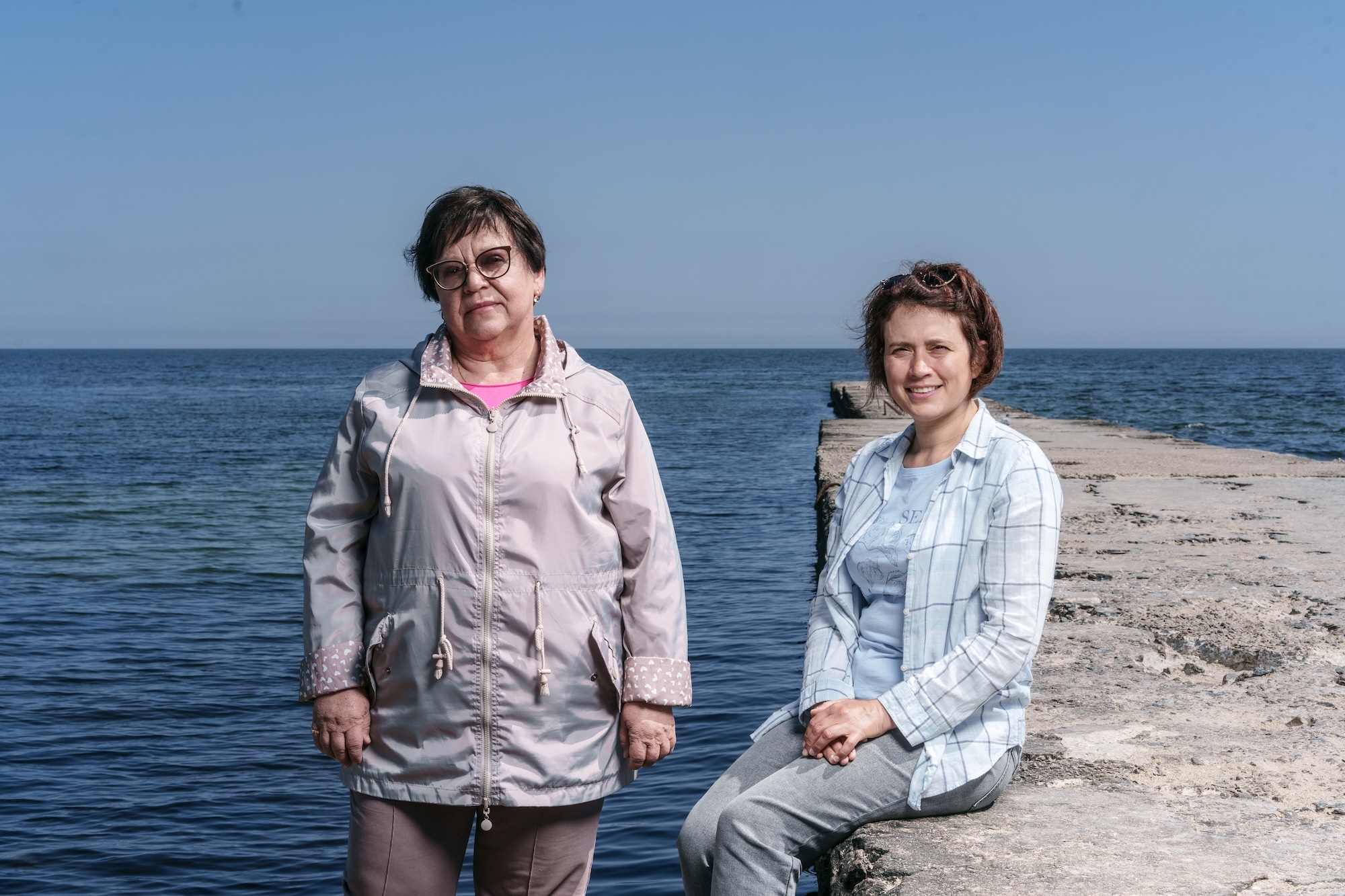
Halyna Minicheva
Field of scientific interest: hydrobiology and algology
Director of the Institute of Marine Biology of the National Academy of Sciences of Ukraine
48 years in science
Back in school, I discovered a book called “Your Friend the Sea” by the hydrobiologist and Doctor of Biological Sciences, Yuvenaliy Zaitsev. Reading it convinced me that I wanted to become a marine hydrobiologist. After finishing school, I did not score high enough on my entrance exams to enter university, but that was how I first learned about Yuvenaliy Petrovych himself.
He was the head of the institute, and once I even waited outside the department office to ask him directly to hire me. At that time, the department still had a research vessel, called Myklukho-Maklai, which took scientists on expeditions as far as the Mediterranean Sea. Yuvenaliy Petrovych was preparing to leave on such an expedition the very next day, so he told me to come back in forty days, once they returned. But what was I supposed to do for forty days? In the meantime, I took a job at a school — though I kept returning to Yuvenaliy Petrovych, asking if there might be a place for me at the department.
A year later, I enrolled in evening classes at the institute and eventually transitioned to the full-time program. Yuvenaliy Petrovych became my supervisor for my first dissertation, which focused on algology — the study of lower algae. At that time, one of the most renowned scientists in the field, Professor Khailov, asked him, “Who is Halyna Minicheva?” Yuvenaliy Petrovych spoke about my work, by then no longer as a lab assistant but as an engineer and in doing so introduced me to the scientific community.
Yuvenaliy Petrovych passed away in 2020 at the age of 96. This year, to honor his legacy, the Institute published a reprint of his book, now titled “My Friend the Black Sea.” That little book was where my journey began, and today I am proud to serve as co-editor of its modern edition.
For some time, I found it difficult to step into the role of a teacher for young researchers. For most of my life, I had looked to my own mentors and waited for their guidance. Now I realize that I am the last of my generation, which is why I devote so much time to working with students. Some people are simply born for science—for botany, for zoology—and I recognize that same spark in them.
Despite all the challenges I have faced, it never occurred to me to work anywhere outside Ukraine. Now, due to Russia’s full-scale war against Ukraine, we only have access to one of our three coastal research sites. The military allowed us to work there after the Russians blew up the Kakhovka Hydroelectric Power Plant so that we could study the impact of this disaster on local ecosystems. We provided our expertise to the Prosecutor General’s Office, testified as official witnesses in this case and submitted formal conclusions based on water samples from the region.
When people ask me what it means to be a Ukrainian scientist — or even what it means to be a country as Ukraine — I can only answer: it is the people, and our people are all different.
At international conferences, the first slide of my presentation always shows the Ukrainian flag, the coat of arms and the title “National Environmental Report of Ukraine.” In those moments, I understand that, right now, Ukraine is me. This is not pathos or exaggeration. Over the years, I have received many offers to work abroad, but I cannot leave the Institute, leave science, or leave my work — because this is my life.
Kateryna Kalashnyk
Field of scientific interest: hydrobiology and phytobenthos
Research associate at the Department of Monitoring and Forecasting Methodology, Institute of Marine Biology, National Academy of Sciences of Ukraine
18 years in science
As a child and teenager, I didn’t know anyone working in science, yet I’ve always felt I was born with a love for botany. My grandmother, who had an agronomic education, nurtured that passion. Whenever we visited the village together, we would walk through the fields as she told me about the plants growing there.
Since childhood, I have enjoyed reading books about animals and plants, and I was fascinated by mathematics, biology and chemistry. At university, under the guidance of my supervisor, Svitlana Kovalenko—one of the department’s finest teachers—I began studying the flora of Odesa.
I never imagined myself becoming a scientist, I thought I would be a teacher. But during my teaching practice, I realized that working in a school would be difficult for me. Around that time, I was offered a place in the graduate program at the Institute of Marine Biology. Although my background in the botany department had focused on higher plants rather than algae, I decided to give it a try.
I never imagined myself becoming a scientist, I thought I would be a teacher. But during my teaching practice, I realized that working in a school would be difficult for me. Around that time, I was offered a place in the graduate program at the Institute of Marine Biology. Although my background in the botany department had focused on higher plants rather than algae, I decided to give it a try.
I defended my PhD thesis and am now working on the bioindication of water quality using algae. My responsibilities include developing and defining ecological indicators of microphytoplankton — microscopic algae that reflect changes in water salinity and help us make recommendations for improving aquatic ecosystems. Together with a large research team led by Halyna Minicheva, we conduct fieldwork at the Tiligul Estuary, collecting and studying multicellular algae. This line of research has become especially important, as access to many other water bodies is currently restricted due to their occupation by Russian troops.
Algae research is a fascinating field of science, offering unique insights into the health of aquatic ecosystems. It is crucial to observe their dynamics: for instance, certain species of algae have disappeared over the past century. Why has this happened? To answer, we examine factors such as changes in water salinity or pollution as possible causes. We also use ecological indicators that help us track whether these processes are connected to climate change.
It is essential to build connections between different generations of scientists, as this enables the transfer of knowledge, the formation of schools of thought and the creation of new ideas.
Many young scientists have left Ukraine because of the war, but I never considered doing so: my family is here, and I did not have the courage to leave my hometown. Besides, someone must remain in Ukraine.
At the same time, wherever Ukrainian scientists find themselves, they remain Ukrainian. My friends who went abroad for postdoctoral fellowships still list their Ukrainian affiliation in their publications, and I believe that matters. After all, what kind of scientists are we, if not Ukrainian?
[This publication was created as part of the WOMEN IN SCIENCE project, implemented by the INSCIENCE non-governmental organization within the framework of “EU for Gender Equality: Together Against Gender Stereotypes and Gender-Based Violence” in partnership with UN Women Ukraine and UNFPA, the United Nations Population Fund, with funding from the European Union.
The responsibility for the content of this text lies solely with the public organization INSCIENCE and does not necessarily reflect the views of UN Women Ukraine, UNFPA, the United Nations Population Fund and/or the European Union.]
